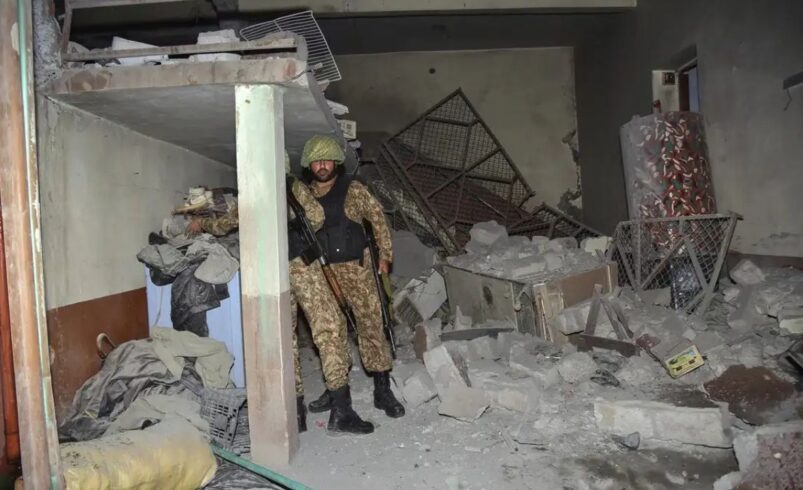On April 22, 2025, a brutal terrorist attack rocked the scenic town of Pahalgam in Indian-administered Kashmir, killing more than two dozen civilians—mostly tourists. The incident shocked the nation and prompted immediate accusations from India, which blamed Pakistan-based terror groups for orchestrating the massacre. The Indian government pointed fingers at Lashkar-e-Taiba and Jaish-e-Mohammed, groups known to operate with impunity from across the border. Pakistan swiftly denied involvement, calling the allegations baseless and politically motivated. However, the damage was done. The gruesome attack reignited long-standing hostilities between the nuclear-armed rivals and set the stage for a military retaliation that would soon escalate regional tensions to new heights.
The Launch of Operation Sindoor: Nine Targets, One Message
On May 6, 2025, the Indian military launched a bold retaliatory move codenamed Operation Sindoor. This involved a coordinated missile strike on nine strategic sites in both Pakistan and Pakistan-administered Kashmir. The Indian Army announced the operation with a chilling post on X (formerly Twitter): “Justice is served.” The missile targets reportedly included terror training camps, weapon storage depots, and launch pads used to infiltrate militants into Indian territory. These strikes aimed to send a clear message: cross-border terrorism would not go unanswered. Indian defence officials maintained that the operation was a “precision strike” meant to avoid civilian casualties, though Pakistani authorities reported deaths and injuries on the ground.
Pakistan’s Reaction: Warning of Retaliation
Pakistan condemned the strikes as an unprovoked act of aggression, branding it an “act of war.” According to Islamabad, Indian missiles struck six locations, killing at least eight people and injuring more than 35 civilians. Pakistan’s Foreign Office vowed a “robust response” and put its military on high alert. State-run media portrayed the strikes as reckless and escalatory, while Pakistani political leaders demanded international intervention. Analysts warned that the situation was highly volatile and could spiral into a broader conflict if cooler heads did not prevail. With both nations equipped with nuclear capabilities, any further provocation could have catastrophic consequences for the region.
The Global Stage: Calls for Restraint and Diplomatic Channels
The international community was quick to respond. Nations such as the United States, China, and the United Kingdom urged both sides to de-escalate immediately. The United Nations called for restraint, expressing concern over the rising risk of open conflict. Observers noted that this incident echoed the 2019 Balakot strikes, yet this time, the rhetoric and military posture from both capitals seemed far more aggressive. Backchannel diplomacy is reportedly underway, but the credibility of peace talks remains questionable. As South Asia stands on the brink, world powers are keenly watching for signs of dialogue—or further confrontation.
What Lies Ahead: Between Deterrence and Diplomacy
Operation Sindoor has undoubtedly raised the stakes in the India-Pakistan conflict. For India, the strikes were a demonstration of strength and a response to a terror attack that demanded justice. For Pakistan, the strikes represented a violation of sovereignty and a trigger for retaliation. The real question now is whether this show of force will deter future attacks or push the region toward prolonged instability. Military readiness remains high on both sides, but so does public pressure for diplomatic resolution. In the days to come, all eyes will be on whether the two nations choose the path of war—or a fragile peace built on deterrence and dialogue.
Get the latest in business, markets, startups, and policy—visit businessnewsindia.in for in-depth updates and follow us on Instagram @businessnewsindia.in for daily bites of what matters most.
Source – aljazeera.com









